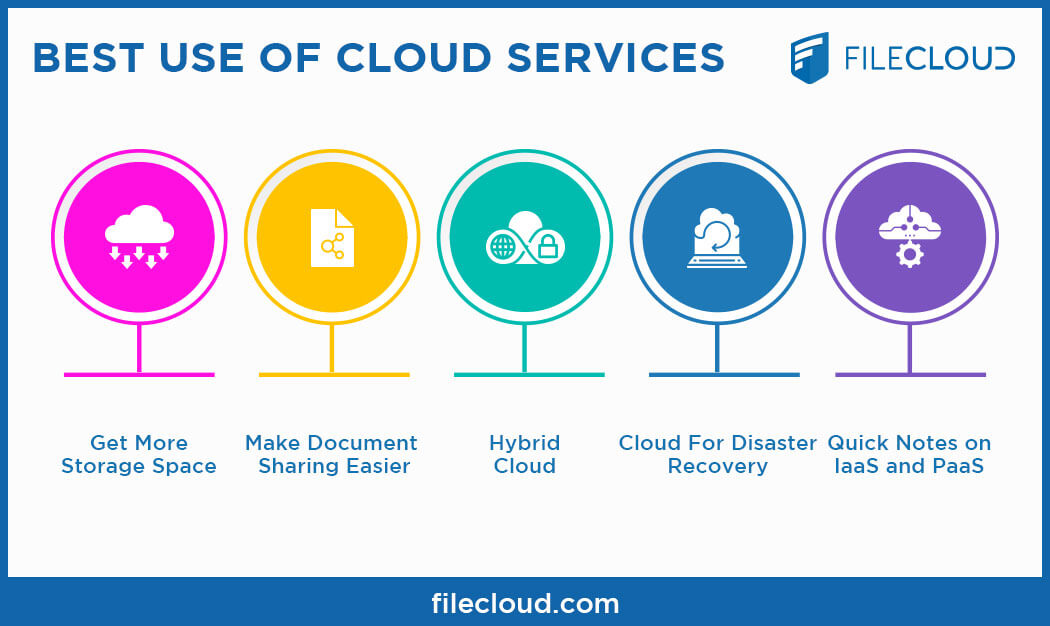Streamline IT Management With Cloud Services
In today's swiftly progressing electronic landscape, the role of IT management is becoming increasingly complex. Organizations are continuously seeking ways to improve their IT operations to stay agile and affordable. Cloud solutions have actually become a sensible remedy for organizations looking to enhance efficiency, decrease costs, and enhance general IT performance. By embracing cloud technology, companies can attain higher versatility, scalability, and safety in handling their IT framework. Exactly how precisely do these cloud solutions revolutionize standard IT management practices? Allow's explore the transformative effect of leveraging cloud services on IT operations and the vital considerations for successful application.
Benefits of Cloud Services

Furthermore, cloud services enable organizations to improve their functional performance by streamlining processes and minimizing the time and resources required for managing IT framework. With cloud services, businesses can automate routine jobs, such as software program updates and data backups, liberating IT groups to concentrate on even more strategic campaigns that drive organization worth.

Boosted Scalability and Adaptability
Cloud services supply organizations with exceptional scalability and flexibility in managing their IT sources effectively. Scalability is an important function of cloud solutions that permits business to quickly change their IT sources based upon need. With cloud solutions, organizations can promptly scale up or down their computer sources, storage space ability, and network data transfer to satisfy altering requirements without the demand for substantial in advance financial investments in hardware. This versatility enables organizations to adjust to fluctuating workloads, seasonal needs, or unanticipated growth without experiencing downtime or efficiency concerns.
Additionally, cloud services offer the versatility to select from a selection of solution versions, such as Infrastructure as a Solution (IaaS), Platform as a Service (PaaS), or Software Application as a Solution (SaaS), based on the specific needs of the service. The improved scalability and adaptability provided by cloud solutions encourage businesses to enhance their IT operations and stay nimble in today's vibrant market setting.

Cost-Effectiveness and Savings
With the capacity to successfully allot sources based on need, organizations making use of cloud solutions can harness substantial cost-effectiveness and understand considerable cost savings in their IT operations. Furthermore, cloud services minimize upkeep prices by changing the duty of hardware upkeep and software updates to the service provider. Overall, the cost-effectiveness and financial savings attained with cloud services enable companies to reallocate resources towards development and development campaigns.
Improved Protection and Compliance
Enhancing the overall safety and security position and guaranteeing regulatory conformity are vital factors to consider for organizations leveraging cloud services in their IT monitoring methods. Cloud company offer sophisticated security actions, such as data security, multi-factor authentication, and automated back-ups, which can bolster a firm's safety and security structure. These carriers likewise follow strict governing requirements, such as GDPR, HIPAA, and PCI DSS, aiding businesses satisfy conformity requirements better.
Executing cloud solutions can enhance safety by providing centralized control over gain access to monitoring, monitoring, and data security. This central approach simplifies protection management and guarantees constant application of protection plans across the organization. Furthermore, cloud solutions frequently use real-time protection updates and spots, decreasing the danger of vulnerabilities and prospective violations.
Finest Practices for Cloud Implementation
Implementing cloud services successfully requires a structured approach that encompasses comprehensive planning and attentive implementation. To make sure a smooth change to the cloud, companies must begin by carrying out an extensive evaluation of their current IT read the article facilities and determining which workloads appropriate for migration. It is important to establish clear purposes and specify crucial performance signs (KPIs) to measure the success of the cloud implementation.
One of the ideal methods for cloud implementation is to very carefully pick a cloud provider that straightens with the organization's requirements in terms of safety and security, cost-effectiveness, compliance, and scalability. Additionally, producing a detailed movement plan that lays out the steps entailed, timelines, and responsibilities is critical for a successful execution.
On a regular basis keeping track of and maximizing cloud resources to make certain efficient efficiency and price management click for more is an additional crucial element of cloud implementation ideal techniques. Constant evaluation of the cloud environment and remaining educated about updates and new attributes offered by the cloud supplier can further enhance the organization's cloud method. By adhering to these ideal practices, organizations can simplify their IT management and make best use of the advantages of cloud services.
Conclusion
Finally, leveraging cloud solutions for IT monitoring offers numerous advantages, consisting of boosted scalability, cost-effectiveness, boosted protection, and conformity. By adhering to finest practices for cloud implementation, companies can simplify their IT operations, automate routine tasks, and optimize resource allotment. This streamlined approach enables IT groups to concentrate on strategic campaigns and innovation, advice inevitably supplying worth to the company. Generally, cloud services improve operational efficiency and dexterity in handling IT facilities.
Additionally, cloud services provide the flexibility to pick from a selection of solution designs, such as Framework as a Solution (IaaS), System as a Solution (PaaS), or Software Application as a Service (SaaS), based on the certain demands of the business. Additionally, cloud services minimize upkeep costs by shifting the obligation of hardware maintenance and software program updates to the solution company.Enhancing the overall security pose and making certain governing conformity are extremely important factors to consider for services leveraging cloud services in their IT management methods.Routinely maximizing and checking cloud resources to make sure efficient performance and cost administration is one more critical facet of cloud application best techniques. Continuous analysis of the cloud atmosphere and staying educated about updates and brand-new functions offered by the cloud service provider can better improve the organization's cloud approach.